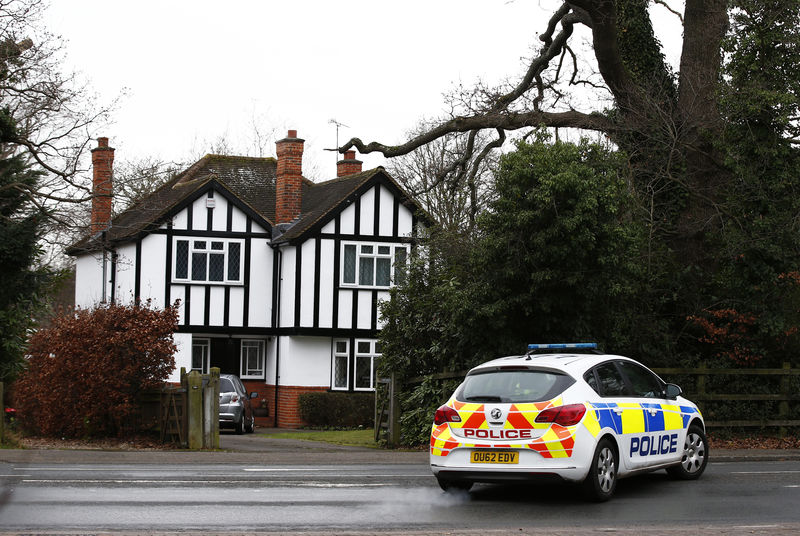By Mark Hosenball
(Reuters) - Federal lawyers probing the origins of the investigation of ties between Russia and President Donald Trump's campaign have interviewed the author of a "dossier" that alleged misconduct between Trump and Moscow, prompting the lawyers to extend their inquiry.
Three attorneys from the Inspector General's office of the U.S. Department of Justice met in person in early June with dossier author Christopher Steele in Britain, said two sources with direct knowledge of the lawyers' travels.
The interview with Steele, a former top spy on Russia for Britain's Secret Intelligence Service, or MI6, took place while Trump was in London for a formal state visit with Queen Elizabeth and a meeting with UK Prime Minister Theresa May.
Steele's dossier, made public in 2017, alleged that Moscow attempted to interfere in the 2016 U.S. presidential election and that there was potential collusion between Russia and Trump's campaign, along with other unverified and salacious claims about the president.
The Justice Department's inspector general has been examining the earliest stages of an FBI investigation of Trump, his former 2016 presidential campaign rival Democratic nominee Hillary Clinton, Russia and former Trump adviser Carter Page.
Inspector General Michael Horowitz, whose office is an internal Justice Department watchdog, launched his probe in March 2018 amid allegations by Republican lawmakers that the FBI erred in seeking a warrant to monitor Page.
Trump has described the Steele dossier as "bogus" and Republicans have long sought to discredit the FBI's investigation, which was later taken over by U.S. Special Counsel Robert Mueller. His final report on Russia and the Trump campaign was released in redacted form in mid-April.
In that same month, Attorney General William Barr, who now heads the Justice Department, told a congressional committee that the Horowitz probe would be completed by May or June.
One of the two sources said Horowitz's investigators appear to have found Steele’s information sufficiently credible to have to extend the investigation. Its completion date is now unclear.
A key focus of the Horowitz probe is whether the FBI followed proper procedures when it applied for a warrant with the Foreign Intelligence Surveillance Court (FISA) to secretly conduct surveillance on Page and his ties to Russia.
Declassified documents show that the FBI cited information in Steele's dossier when it asked the secretive FISA court in late 2016 for a warrant to eavesdrop electronically on Page, a U.S. businessman with interests in Russia.
Horowitz's office in Washington declined to comment.
A spokesman for Orbis Business Intelligence, Steele’s London investigations firm, declined to comment.
UK government agencies declined to disclose whether they were in contact with Horowitz's team in London.
Moscow repeatedly rejected accusations of interfering in the election.
Mueller's report, released on April 18, said that Russia did meddle in the election in an attempt to boost Trump's candidacy. It said Trump campaign officials had multiple contacts with Russian officials. But it found insufficient evidence to establish a criminal conspiracy between the campaign and Moscow.
The report also described numerous attempts by Trump to impede Mueller's inquiry, but it stopped short of declaring that he committed a crime. Mueller during his inquiry brought charges against 34 people, including Russian agents and ex-Trump aides.
Page, a foreign policy adviser during Trump's campaign, drew scrutiny from the FBI, which said in legal filings in 2016 that it believed he had been "collaborating and conspiring" with the Kremlin. But he was not charged.

Investigators working for Mueller in September 2017 twice interviewed Steele, who also gave written testimony to the U.S. Senate Intelligence Committee in August 2018. That panel and other committees of Congress have taken up where Mueller left off after his investigation ended.